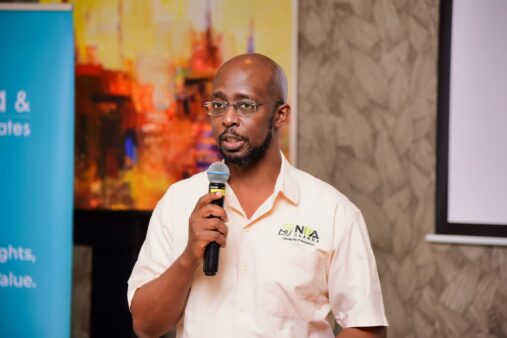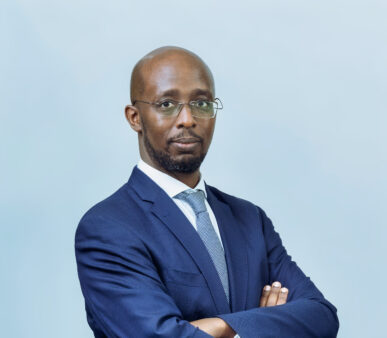The proposal to form a new national telecommunications company was curved out at a high- stakes meeting that was held at State House, Entebbe on Friday 12th, March 2021.
The new telecom was a directive from President Museveni based on the legal advice from Attorney General Kiryowa Kiwanuka, which would be owned by government with the Ministry of Finance owning 60 percent shareholding while the Ministry of ICT and National Guidance holding 40 percent as initial shareholders.
The rebrand to the new Uganda Telecommunications Corporation Limited was a departure from the old name of Uganda Telecom Limited (UTL).
The rebrand also presented a return of government into the telecom business after a decade since UTL sunk into losses after the Libyan war in 2011 that ousted its majority financier, deposed Libyan President, Muammar Gadaffi.
0n the 29th of March 2021, a fortnight after the State House meeting, President Museveni wrote to the ICT and Finance cabinet ministers demanding that all government digital infrastructure be consolidated under the new national telecom company to enable it deliver low priced internet capacity and other services to government and across the country.
Most of the current government digital infrastructure including the National Backbone Infrastructure (NBI) and National Data Center are consolidated under National Information Technology Authority-Uganda, a government agency which is autonomous but under close watch of the ICT Ministry.
The National Data Transmission Backbone Infrastructure and e-Government Infrastructure Project (NBI/EGI) aims to connect all major towns within the country onto an Optical Fibre Cable based Network and to connect Ministries and Government Departments onto the e-Government Network.
However, since 2021, officials from the National Information Technology Authority- Uganda (NITA-U) are still playing dodgeball with the ICT Ministry officials creating delay in the handover of the digital infrastructure to the newly formed telecom. At the center of this brawl is a multi- billion question.
Here’s why?
In March 2021, President Museveni directed the Ministry of Finance to make a formal offer to Rowad Capital Commercial (RCC)- a Dubai based company to jointly invest in the new national telecom company with 60 percent shareholding going to RCC, and 40 percent shareholding to government.
In addition to government’s equity contribution, the President directed that RCC- the Dubai based company would commit to avail a minimum of USD 25 million (UGX 95b) within 90 days as working capital, and USD 200 million (UGX 761b) for the network revamp in the new telecom company during the first three years.
Museveni reasoned that it is this new company that would eventually make an offer to purchase the assets and business of the now defunct Uganda Telecom, which was under administration.
The consideration for the acquisition of assets of the ‘old’ Uganda Telecom meant that the finances generated would clear certain outstanding arrears such as Pension Claims amounting to UGX 340b for former employees of the Uganda Posts and Telecommunications Corporation; preferred taxes amounting to UGX 200b, UCC spectrum arrears of 2 percent levy amounting to UGX 60b; UGX 49.4b in loan arrears to purchase new equipment, and other outstanding administrative costs.
Museveni also directed Uganda Communications Communication (UCC) to issue a National Telecommunication Operators (NTO) License to the new telecom.
Following the President’s directives, everything went into free flow as government negotiated shareholding rights with the new investor.
Inspite of President Museveni’s preferred investor- Rowad Capital from Dubai. Another investor – Axian Telecom from Mauritius emerged around April, 2022 indicating interest in the new telecom company, a deal which never materialized leaving Axian investors in frustration.
On the other hand, Rowad Capital Commercial faced serious scrutiny by the Financial Intelligence Authority (FIA).
On 2nd June 2022, Moses Kantu, the Chairperson of Rowad Capital wrote to President Museveni requesting for a meeting to update him on the “impediments and unfounded technicalities” deterring the potential investors, according an internal memo authored by Lt. Gen. Proscovia Nalweyiso on July 14th, 2022.
A review of a 2022 FIA annual report indicated that Rowad was among the 10 companies which underwent due diligence as part of an exercise for any company intending to partner with the government to undertake key investment projects, with a FIA report about the company submitted to the Ministry of Finance.
New developments
Fast forward to August 17th, 2023, it emerged that government was launching a new telecom company at an evening dinner held at Uganda Telecom offices in the Kampala central business district. An event many took many by surprise.
Those in attendance at the dinner included top government officials with varying interests in the new business including the Prime Minister Robinah Nabanjja, Finance Permanent Secretary Ramathan Ggoobi, NITA-U Executive Director, Dr Hatwib Mugasa, ICT Minister Dr Chris Baryomunsi, and the top architect of the new company, State Minister of Finance for Investment and Privatisation, Evelyn Anite.
Amidst popping champagne, cake slicing, celebrations and dancing led by Minister Anite. The ICT minister, Chris Baryomunsi took to the podium to hint on an investment plan in which the government had made an initial UGX 300b with plans to attract other investors and partners on board.
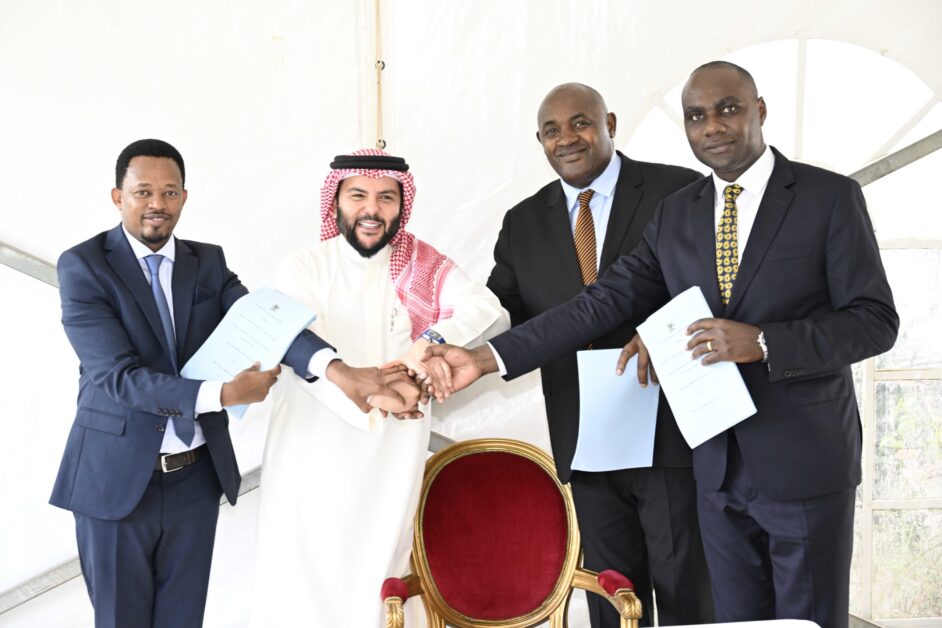
Ironically, no mention of Rowad Capital Commercial was made at the launch of the new telecom even when governmment officials had an idea about back door negotiations going on.
A visibly excited Anite who had accomplished her mission of bringing UTL ‘back to life’ under her privatisation docket rallied Ugandans to use the company’s services in what she described as, “…a new dawn to enrich our company because it’s our national pride.”
The Investment minister went on to brush off any ideas that the government couldn’t do business based on past experiences of government parastatals.
Baryomunsi was also ready to support the new company noting that whereas UTL had suffered growth retardation, there were plans to provide the company with extra spectrum to move faster to 4G so as to compete favourably with the current telecom companies that had moved to 5G.
Maggie Mukiibi Lutwama, Chief Operating officer at UTCL hailed the new company noting that it would focus on new innovations in the market.
Dubai investor courts Museveni
To speed up negotiations, the Rowad Capital group Chief Executive, Mr Chaher Al Taki paid a visit to President Museveni on the afternoon of October 16th, 2023 at State House, Entebbe.
At the meeting, Mr. Chaher informed Museveni of his group’s interest to invest in various sectors which included among others oil and gas as well as telecommunications.
In attendance was Minister of Finance, Matia Kasaija and Investment Minister, Anite.
Others in attendace included Chairperson of Tumaini African Knowledge Center (TAKC), Ambassador Rosa Malango and TAKC board member, Ms. Rose Birungi.
As Ugandans broke off for the festive season holidays on the 22nd of December, 2023; another major deal was being finalised within the State House Corridors in Entebbe.
President Museveni, in a letter, informed ICT Minister Dr Baryomunsi that he had received a letter from Rowad Capital Commercial in the United Arab Emirates indicating their willingness to invest USD 250 million in UTL.
“You should accept that Rowad capital acquires 60 percent shares straight away. The details of who put in more money can be settled along the way. They should have a majority on the board,” Museveni wrote.
The President through the letter instructed the ICT Ministry to formally hand over the management of the multi billion [National] ICT backbone infrastructure to the new national telecom company.
“They should be given the management of the ICT backbone which, I hear, had been given to another private operator without my knowledge. Who made that decision? What advantage did Uganda get in that?” Museveni asked.
The President went on to indicate that the telecommunications sector was a money puller/ accumulator with the country now having 32 million telephone lines compared to the 23,000 of 1986.
However, he noted that a bit of the money had continued to be externalised by the foreign companies operating in the country, which gave background to re- activating a government telecom company with ownership of 40 percent, run on the account of other private sector partners owning 60 percent shareholding.
“The joint venture company of UTL will create jobs, pay workers, pay for utilities and pay taxes like the private telephone companies are doing; but, in addition, it will also generate dividend for the country,” Museveni concluded.
Divided opinion
It is against this background that a process to structure the new telecom company’s shareholding fell on the shoulders of Attorney General, Kiryowa Kiwanuka who was required to provide his legal opinion.
On Jan 4th, Kiryowa wrote to the shareholders of the new telecom after executing a Share Subscription and Allotment Agreement demanding that they meet a number of conditions within 90 days from the date of signing.
A Share Subscription agreement defines the relationship between shareholders and the company. The agreement safeguards the rights and obligations of the majority and minority shareholders, and it ensures all shareholders are treated fairly.
Some of the conditions included; delivery by the company and the current shareholders to Rowad of a copy of the relevant National Telecommunications Operator License issued by UCC under the Communications Act.
The license allows a telecom to conduct business legally and have a footprint at a national level.
Delivery of a copy of special resolution of the shareholders passed under section 71 of the Companies Act, approving the alteration of the company’s share capital and creation of the subscription shares; negotiation and signing of a shareholders’ agreement.
Another condition required the negotiation and conclusion of a Government Support Agreement between government, Rowad and the company.
It provided for, among others, investor protection and the manner in which government shall support the implementation of the objective of the Agreement to the fullest extent possible, in particular to commit to support the company to be given priority for government telecommunication business, among other conditions as outlined.
However, hell broke loose between February and March this year, in which officials from the National Information Technology Authority- Uganda (NITA-U) played dodgeball with Dr Aminah Zawedde, the ICT Permanent Secretary, according to a number of correspondences shared between the two government entities reviewed by the CEO East Africa Magazine.
NITA-U’s hesitation to pass on government’s digital infrastructure to UTL arises from a rationalisation plan meant to streamline government agencies, in which NITA-U is expected to be absorbed into it’s mother ICT Ministry.
Passing on the digital infrastructure means that NITA- U will simply have little or no role to serve ending its service lifecycle naturally.
Government’s digital infrastructure is also a multi- billion project that has attracted heavy funding from reputable financial institutions such as the World Bank, riding on the back of accelerating digital services, inclusion and the economy.
For instance, in 2021, NITA-U secured USD 200 million (UGX 761b) in credit and grants from the World Bank and International Development Association towards the implementation of the Uganda Digital Acceleration Project (UDAP).
The project is meant to expand access to high-speed internet in selected areas, improve the efficiency of digital service delivery in selected public sectors, and strengthen the digital inclusion of selected host communities and refugees.
However, Dr Zawedde, the ICT Permanent Secretary in February 12th letter to the Auditor General warned that the handover of the digital infrastructure from NITA-U would require government to bear certain costs.
Dr Zawedde noted that the costs were arising from the termination of the contract of Soliton Telmec Ltd, the company responsible for operating and maintaining the digital infrastructure.
The decision for Dr Zawedde to write the Auditor General was out of the urgency to complete the onboarding of the new investor in UTCL by 20th March, 2024.
In copy to Dr Zawedde’s letter was Dr Hatwib Mugasa, the NITA- U Executive Director who was required to support the Auditor General’s office in the execution of the verification exercise.
NITA- U was supposed to furnish the Auditor General with information regarding the 21 running contracts entered into by Soliton Telmec Ltd with other private clients, hardware and software inventory, other technical and financial requirements, and a visit by Rowad Capital investors to the data center.
On 28 February, Dr Zawedde wrote another letter to Dr Mugasa at NITA-U which served as a reminder about the asset verification exercise.
Dr Zawedde’s letter to Dr Hatwib was in response to an earlier letter from Dr Mugasa authored on 26th February, in which he indicated that the National Data Center was not part of National Backbone Infrastructure, and therefore did not warrant transfer to the new telecom.
Dr Mugasa also added that the National Data Center was being managed using internal resources, and therefore was not part of any agreement.
“In line with the above, keeping with the physical security requirements of the National Data Center, the visit by a team from ROWAD to the Data Center is not justified,” Dr Mugasa wrote.
However, Dr Zawedde hit back at Dr Mugasa reminding him that the Data Center formed part of the digital infrastructure.
“This is to confirm to you that indeed the National Data Center is part of the National Backbone Infrastructure and also part of Government Digital Infrastructure,” Dr Zawedde wrote.
She added the “internal funds” used to manage the National Data Center are also government funds appropriated by Parliament as per the Public Finance Management Act of 2015 (as amended).
Additionally, Dr Zawedde still reminded Dr Mugasa about an earlier Presidential Directive of 29th March, 2021 directing all government digital infrastructure to be consolidated under Uganda Telecommunications Corporation Ltd (UTCL).
“You have been part of meetings and negotiations where this Directive was discussed, and are therefore fully aware of the steps the Government of Uganda is taking to implement the Directive,” Dr Zawedde wrote.
Given the above background, the letter served to remind Dr Mugasa to allow Rowad investors to have the necessary clearance to visit the National Data Center and any other Government ICT facility for purposes of investment due diligence.
A stalemate
After failed access to the data center and rising frustration, Rowad Capital brokers sought the legal services of Abmak Associates, a Kampala law firm.
In a March letter addressed through Abmak Associates to ICT Minister Dr Baryomunsi, Rowad Capital indicate that, at the commencement of the negotiations of the Shareholder’s Agreement; Rowad was informed that all communication should be routed through Dr Zawedde especially in regard to all information relation to the digital infrastructure.
Unfortunately, NITA-U, which is in possession, or control of this information has not delivered the said information to the Permanent Secretary.
In addition to the above, Rowad sent its technical team to Uganda to interface with government and to visit the NBI facilities, including the Network Operation Center, the Metropolitan Area Network and the National Data Center.
Unfortunately. NITA- U denied the technical team access to any of the above facilities and also claimed (erroneously) that the Data Center is not part of the NBI.
Rowad investors note that the above conduct by NITA-U has had the effect of delaying the development of the Business Plan and the completion process.
Rowad also seeks to access information from Uganda Communication Commission on site coverage for 2G, 3G, 4G and 5G together with corresponding location, site portfolio for the respective infrastructure service providers and fibre coverage both aerial and underground.
However, people close to the matter within both entities say that the pull and push is largely a result of two rival camps with each sabotaging the efforts of another and pushing for a separate investor to take over the new telecom which has caused fights frustrating Rowad Capital’s take over.
How real is Rowad Capital Commercial?
At this stage, if you are wondering who Rowad Capital Commercial LLC (RCC) is and why it wields so much power and favour from the President, you are not alone.
Before this whole bid to take over UTCL, Rowad Capital Commercial LLC (RCC) and its Founder & CEO, Mr Chaher Al Taki were unheard of.
Almost all the information about Chaher Al Taki and his company Rowad Capital Commercial LLC (RCC) is either on the company’s website or on Ugandan news sites and only in reference to the UTCL deal.
Chaher Al Taki, according to the Rowad Capital Commercial LCC website is described as a businessman who has been involved in business for more than 20 years in large transactions in the Middle East and Africa.
The Rowad website also describes Mr Chaher as a businessman who has attained, “a notable degree of success, translated into both high rates of return for his clients and shareholders, as well significant growth for his enterprises” with “vast experience in real estate and contracting in the Middle East”.
He was born in Damascus, Syria in 1976, and later relocated to Saudi Arabia during his childhood and later on to the United Arab Emirates after completion of his studies where he started his professional growth.
The website goes on to say that since 2002, Chaher Al Taki has been a key player in the residential, hospitality and infrastructure sectors in the United Arab Emirates and the Kingdom of Saudi Arabia as owner and Managing Partner of major companies in the region.
In 2007, the website says, Mr. Chaher founded Ruwad Civil Construction, a company that has executed some major real estate projects in the Middle East, especially with a major footprint in the Kingdom of Saudi Arabia.
However, in 2016, Chaher Al Taki sold his shares in Ruwad Civil Construction to a Sheikh Salah Al-Belawi, another Saudi businessman and went on to found Rowad Capital Commercial LLC (RCC)
Rowad Capital Commercial Brokers LLC in 2016. in Dubai, a company that the website says deals in social economic, infrastructure, power generation and oil and gas projects as well as special vehicles manufacturing, EPC and financing services.
Chaher Al Taki, the website says, is also involved in other business lines related to project management, advertising and telecommunications through several sister companies under the RCC group.
The RCC Group includes Rowad Capital Commercial, Sky Light Advertising, Sea Wheat for strategic project management, and SHG Developments. However, most of these companies have scanty information online, except for Rowad Capital Commercial LLC (RCC).
Some of the services these companies offer services such as government relations, international financial transactions, commercial brokerage, and advising clients on the export of industrial capacity, and infrastructure development.
“RCC was created based on the previous experience and contacts networks of Mr Chaher in UAE and Saudi Arabia and it has shown an exponential growth in terms of project awards value, revenues and profit,” the company profile reads in part.
An independent analysis by CEO East Africa Magazine shows some glaring gaps in the company’s credentials, gaps that raise serious questions about its ability to meet its end of the bargain in the UTCL deal- especially the raising of over USD200 million to invest in the telco.
For example, according to information available to us, ‘Rowad Capital Commercial Broker L.L.C’ is registered as a single person. It is registered as a commercial broker, according to the Rowad Company Business License details obtained from the United Arab Emirates online National Economic Register.
The company was incorporated on November 29th, 2016 and its business registration license is due to expire on November 28th, 2024.
The company’s CBLS Federal Reservation number is 10948860 and the Business License local number is 771321 which all can be used in searching about the company details.
The company is registered under the Economic Department of Economy and Tourism.
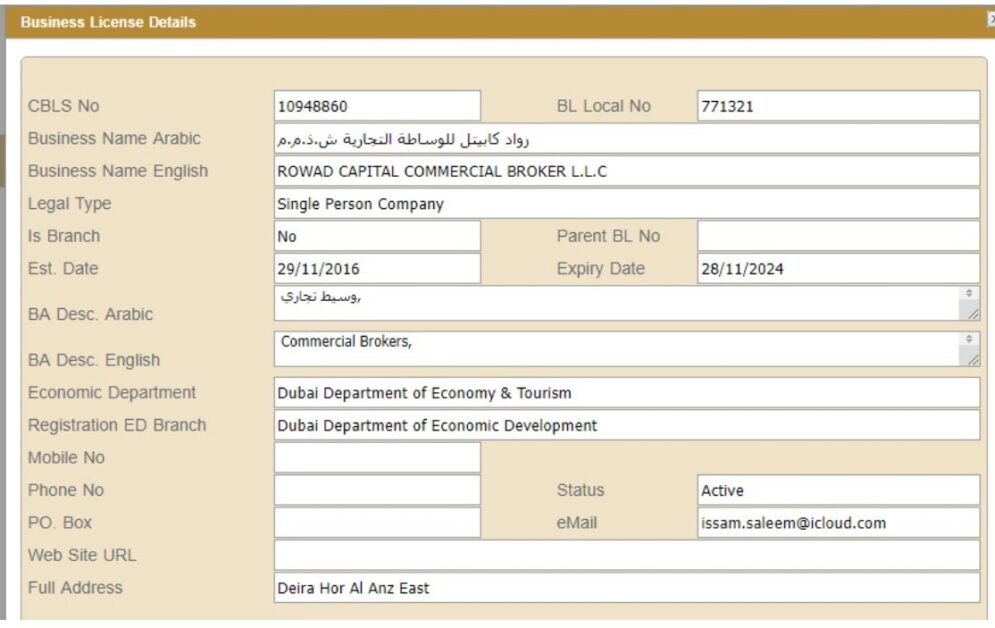
The company’s full address is at Deira Hor Al Anz East, a locality in Dubai, which is different from the address mentioned on the company website in Downtown Burj Khalifa, Boulevard Plaza Tower 1, 9th floor, P.O. Box 340733 also in Dubai, United Arab Emirates.
The Rowad website also has a lot lacking.
For instance, the website doesn’t show any profiles of its board and management executive profiles; there are no annual performance reports, and there isn’t any financial result report to support Rowad’s claims of a high turnover in billions of dollars.
The website lacks original project images, and instead uses commercially available stock images from the internet and has some dead links.
For the telecom business in particular, Rowad shows it has in particular worked in four African countries including Nigeria, South Sudan, Chad and Sudan. It also says that Rowad has executed a Network launch in South Sudan, a National Data Development Plan in Nigeria and a new GSM network planning and rollout support, as well as tower network acquisition in Sudan.
However, details of these projects remain scanty with no mention of the year they were contracted and executed, or even the key partners involved.
The CEO Magazine’s efforts to reach Mr Chaher through an email provided on the company website are yet to bear any fruit.
We also tried to reach out to Dr Mugasa for a comment on these matters did not yield immediate results with the NITA-U communications staff indicating that he was actively engaged with other duties, and would respond at an appropriate time.
A top UTL official who left the company told the CEO Magazine that some UTL staff were sidelined on information regarding the new investor’s activities with most details being handled only at Board and Ministry level.
Meanwhile, ICT Minister Dr Baryomunsi took to his active X (Twitter) account on April 6, in which he offered to address some of the issues raised after some of the information leaked to the media, which he referred to as, “gutter journalism” and “there was no Minister being investigated.”
Rebecca Mukite, the UCC Public and International Relations Manager in an email to the CEO Magazine, noted that the Commission’s role as a regulator will be to monitor to UTCL’s compliance with the license terms and conditions.
In regard to the due diligence on Rowad Capital’s industry expertise, UCC referred this reporter to the government shareholders, who are the Ministries of Finance, and ICT.
“Our role as regulator does not include overseeing contractual obligations between the Government and its shareholders. Please note that we have not been authorized to speak for the Government on this matter,” Mukite said.
This is also not the first time such fights have occurred. Between 2019 and 2020, Evelyne Anite, and Bemanya Twebaze, the former Registrar General at Uganda Registration Services Bureau (URSB) clashed over management of UTL’s assets under administration with Anite accusing Bemanya of poor accountability while Anite was accused of insubordination.
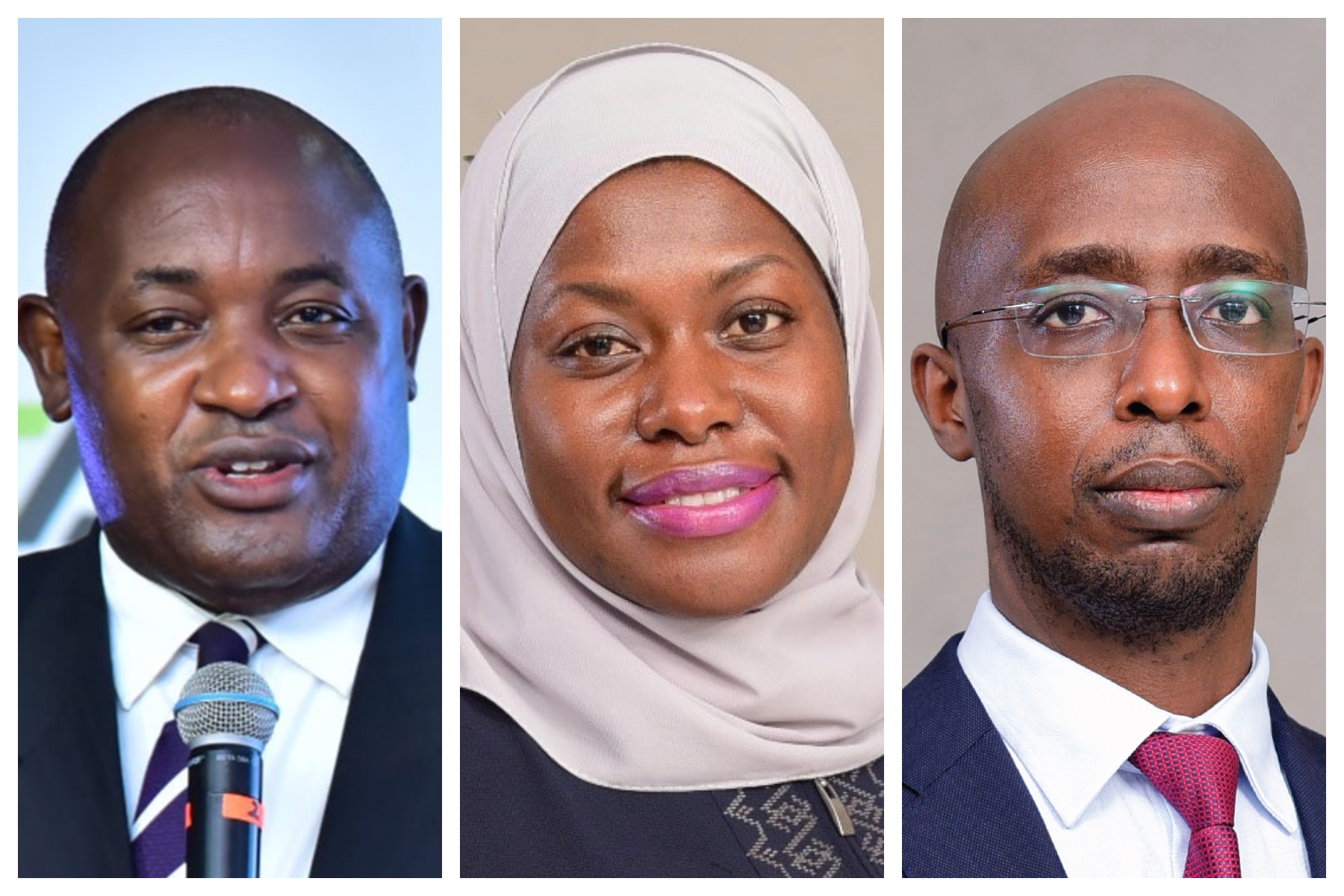
 Everything You Need to Know About Diageo’s Sale of its 65% Stake in EABL to Japan’s Asahi Group
Everything You Need to Know About Diageo’s Sale of its 65% Stake in EABL to Japan’s Asahi Group
